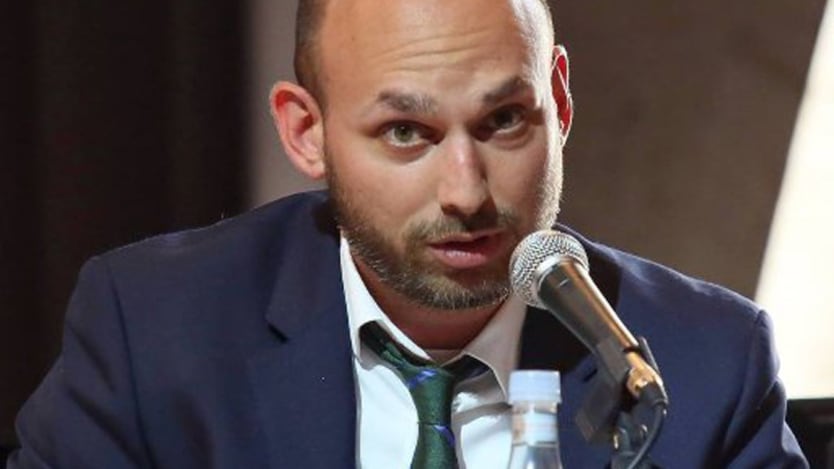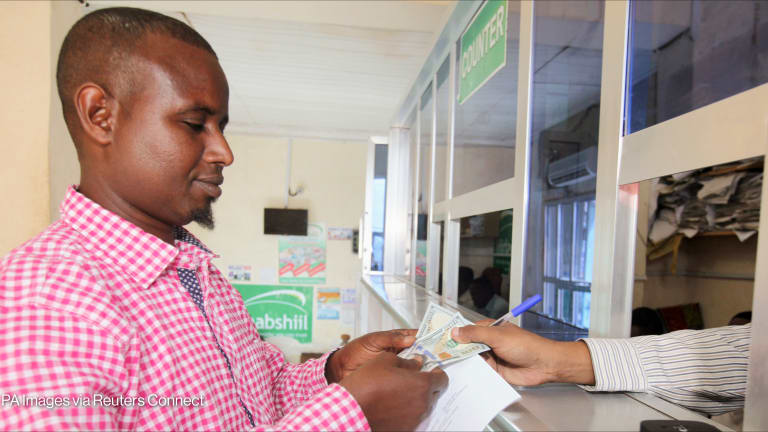
NEW YORK — Armenia’s vast diaspora, estimated at 7-10 million people worldwide, is far larger than the resident population of this small, post-Soviet nation. The new Armenian government is now planning to leverage the support of its diaspora community for long-term, sustainable development work.
The government came to power earlier this year following a nonviolent protest movement, which saw opposition leader Nikol Pashinyan established as the country’s new interim prime minister. The change in leadership has been accompanied by a shift in how the government is approaching implementation of the Sustainable Development Goals.
A new era of governance for Armenia’s development?
Three months after a peaceful revolution, observers are asking whether a change of leadership will translate into more responsive and accountable governance in Armenia, supporting the next stage of its development.
Babken DerGrigorian, an economic adviser and deputy minister of diaspora for Armenia, joined the government in May. A native Californian of Armenian descent, he has an idea to fund development investment: Diaspora bonds. It’s a model that Israel and India have both used effectively, but it has been less successful in other places, such as Ethiopia.
The establishment of government-issued diaspora bonds — which Armenians outside the country could invest in, instead of funneling money into charities, as many of them currently do — is now underway. The government expects to release a formal strategy by the end of the year.
DerGrigorian spoke with Devex about how diaspora bonds function and why he believes this development strategy could work for Armenia. The conversation has been edited for length and clarity.
How did you develop the concept of a diaspora bond for Armenians?
We have a diaspora that is already very involved in charity, but the point is to leverage a small amount of charity intention for a much greater financial impact. These government bonds generally will be lower than the market rate of return, but still better than putting your money in a bank account. It is a win-win situation, in the sense that the government also gets access to cheaper credit on the international market, usually local currency.
The proposition you make to the diaspora is that instead of giving away money to charity as a donation, [you can] use your charity intention to take on the risk associated with local currency bonds.
“The diaspora’s financial contributions to Armenia should not only be based on some emotional attachment. It should rationally make sense for both parties to be sustainable in the long run.”
— Babken DerGrigorian, economic adviser and deputy minister of diaspora for ArmeniaIn general, governments use this money for development-related projects. In our case, it will all be used for SDG-related work, to move Armenia closer to SDG implementation, but of course just general national development projects also.
What made you consider diaspora bonds as an option that could work for Armenia in particular?
This is something I have been researching for a while, especially because I am diasporan. The Armenian diaspora relationship has always had a financial component to it, but essentially it has always been a charity-based relationship. I started thinking about how that money could be spent in a much better way for development projects. It slowly snowballed from there. We had our [political] revolution and I ended up in this position. It is the perfect opportunity to make something like this happen, especially since the revolution was very positively received in the diaspora.
You can categorize the diaspora into two broad categories: The traditional diaspora and the new diaspora. The traditional diaspora are descendants [of those who fled] the genocide and the new diaspora are people who have migrated from Armenia since independence [in 1991]. In terms of economic impact there is a broad range, but the traditional diaspora are better positioned for this. They have been in their host countries for generations and have done well for themselves. But you have some well-to-do business people in the new diaspora who will be some of our targets for this.
Are people from the Armenian diaspora primarily supporting Armenia through donations or remittances?
It is both. The new diaspora generally has been more remittance based, and the traditional has been more [focused] toward charity and benevolent work. For example, the All Armenia Fund has held an [annual] telethon since 1994, and has raised about $300 million [so far]. While this might not seem like a lot, we know the charitable intention is already there … Our goal with the diaspora bonds is to leverage this for much greater financial power.
So the idea is to transform charity donations into something that is more sustainable?
Yes, and it is about moving from the emotional field to a more rational relationship. The diaspora’s financial contributions to Armenia should not only be based on some emotional attachment. It should rationally make sense for both parties to be sustainable in the long run.
How much money is the government hoping these bonds can generate?
This will ultimately depend on the strategy we settle on, but my view is that the first — and perhaps second — issuance is going to be a proof of concept with a short maturity, which will be used to demonstrate the viability of the instrument and ensure trust among the diaspora.
As such, I’d like to see these funds used to finance ring-fenced development projects with direct revenue generating capacity, such as solar panel farms ... Eventually, I’d like to see an annual issuance of diaspora bonds with longer term maturity, for more general budgetary support, but again aimed at development projects — perhaps those without a direct revenue stream but with high multiplier effects for broader economic growth.
What are the biggest gaps in Armenia’s development work that need more support?
This is going to help us move forward on our SDG implementation. That is one of the necessities of any project we do.
The money is going to end up [benefiting] infrastructure, education, and energy, initially. But it is important to set up the parameters of what types of projects we want to do and what ministries can offer.








